
views
Communicating with Your Best Friend
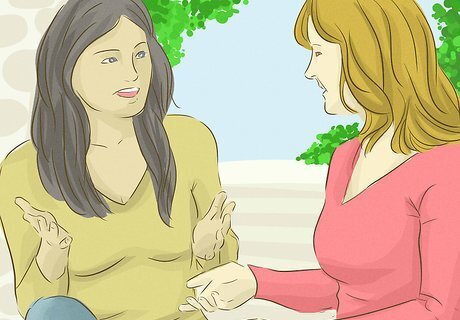
Communicate with your best friend regularly. Communication is one of the most important aspects of any friendship. If you don’t talk to your friend about your thoughts and feelings regularly, you won't know what's going on in the other person's head. While talking to your best friend about personal matters is important, simply chatting about school or catching up on each other’s lives is all part of communicating efficiently. If your friendship is long distance, utilize technology and social media. You can call, text, or email them, as well as use FaceTime, Facebook, Snapchat, or other apps to keep in touch. Continue communicating even when your lives are very different, such as when one of you is in school, one of you is becoming a parent, or one of you is coping with a tragedy.

Listen to each other. Listening to your best friend is an important aspect of great communication. When they’re talking to you, pay attention to what they’re saying by making eye contact and not interrupting. This will show how much you care about them and will make them feel comfortable opening up to you in the future.
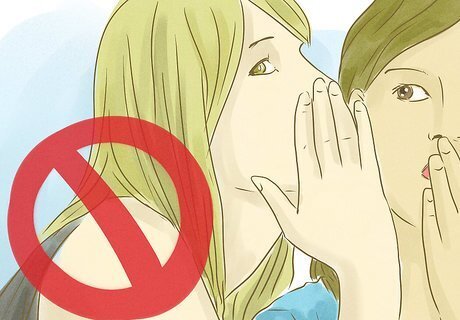
Build trust between the two of you. If you and your best friend can’t trust each other, your friendship isn’t going to go in a positive direction. Spend time really listening to your friend, and be very open and honest about your thoughts and feelings when communicating with them. If your friend tells you something personal, be respectful and keep it to yourself.

Resolve arguments as quickly as possible. Don’t let negative feelings simmer. If you and your friend are having a fight, try to talk to each other and resolve it as soon as you’ve both calmed down. Listen to each other’s perspectives and think about the situation from their point of view.
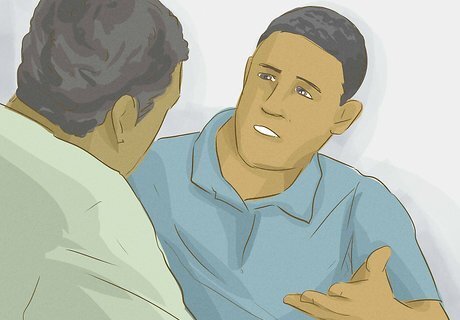
Apologize to your best friend if you upset them. If you do or say something wrong to your best friend, acknowledge it and apologize. Being stubborn or refusing to admit that you were wrong will only cause your best friend to stay upset, so make a genuine apology and learn from your mistakes.

Forgive your best friend when they upset you. Apologies work both ways - if you want your best friend to forgive you when you’ve done something wrong, you have to be willing to forgive them as well. Accept their apology and move on. Holding on to negative feelings will only hurt your friendship.
Creating a Positive Mindset

Set realistic expectations for your friendship. Your friendship should be based on realistic expectations, such as wanting your friend to talk to you if they're upset, treat you with respect, and desire to spend quality time together. Friendships are hard work and nobody is perfect, so have reasonable expectations to avoid disappointment. If you are expecting your best friend to spend all of their free time at your house, respond to your text messages immediately, or only say positive things about you, you’re setting unrealistic expectations for your friendship. Remember that your friendship will change due to life events, such as marriage, children, and job demands. Be open to working around your new schedules and accept that you may spend less time together.

Accept your best friend's flaws. Maybe your friend forgets to respond to text messages, always has a messy room, or is an aggressive driver. Everyone has specific habits or quirks that make them unique, but having a best friend means accepting your friend for who they are. Instead of getting annoyed about your best friend’s shortcomings, try to put your friendship with them into perspective. Try to reverse your thinking - do you have any traits or habits that might be bothering your best friend? Are there ways you can try to address them? If you're having trouble accepting your friend's quirks, try to focus your thinking on their positive qualities. You can offer to make a trade with your friend - you each tell each other one annoying habit that each other has, and then you both promise to work on them.
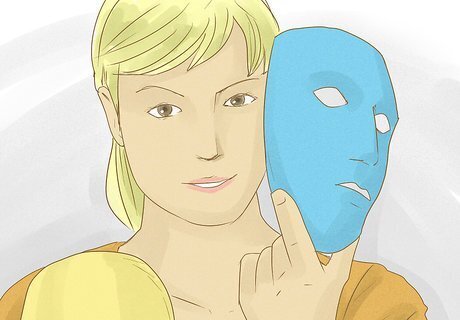
Be your authentic self. Don’t try to act differently so that your best friend will like you more. Be yourself and stay true to your own thoughts, feelings, and values. If your best friend is truly your best friend, they’ll love and accept you for the person you are.

Take equal responsibility for your friendship. It isn’t fair to expect your best friend to be the one to always ask to hang out, be the driver, or give up their family time to spend time with you. If you both like each other, you should both be dedicated to making your friendship the best it can possibly be, which means putting in equal effort. Take turns choosing activities to do together or driving to each other’s houses to share the responsibility. If your friendship is having problems, you should both share the weight of trying to come up with a solution.

Work through feelings of jealousy. It's natural to feel jealous at times of someone you're so close to. Maybe your best friend is spending lots of time with their significant other and you feel neglected, or your best friend is doing better in school than you. Talk to your best friend about these feelings so that they don't fester, and also take time to work through those feelings on your own. The first step to overcoming your jealousy is to make yourself aware of the root of your feelings. Once you've pinpointed what's upsetting you, you'll be able to shift your point of view and try to think in more realistic terms.

Put yourself in their shoes. Whether your best friend is upset or you just want to understand their thought-processes better, think about what it would be like to walk in their shoes. Trying to see different situations from their perspective shows empathy, and they’ll be appreciative that you care enough about them to try to understand their point of view.

Make the friendship a top priority. With such busy lives, it can be easy to overlook your friendship at times. However, best friends are incredibly important to your overall happiness and health, so try to prioritize your friendship over smaller things. It's always possible to make time for great friends, and you'll feel happier once you do so.
Spending Quality Time Together

Set aside time for the two of you. Making time for your best friend is the best way to show them that they’re valued. Schedules can get busy - plan ahead and schedule a time to see them. You’ll enjoy your time together more if each of you knows the other is committed to the friendship. Sleepovers, shopping trips, camps, and outdoor adventures are great ways to spend quality time together. If you're old enough, set aside some time to take a trip together. Not only will the actual trip be fun, but you'll enjoy all of the planning and excitement beforehand too!

Explore similar interests together. If you both love running, decide to go on morning runs before school together. Or if both of you like singing, join a choir together and practice performing songs at each other’s houses. By finding a common interest that you both have, you’ve discovered a great bonding activity that you’re both sure to enjoy.

Try new things with your best friend. Try something you and your best friend have never done before. Experience a festival, explore a new city, or play a sport you've always wanted to try. These new experiences will be sure to create new memories that you'll never forget.
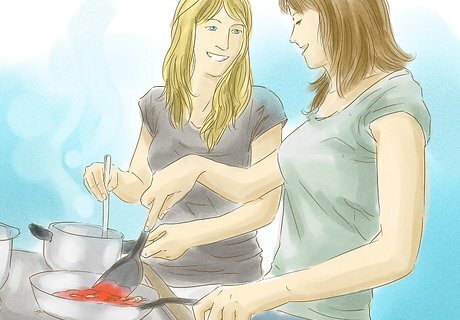
Create something together. Whether it’s a craft, choreographed dance, two-person film, or a great meal, take some time and create something together. It'll be a great interactive activity for the two of you, and, depending on what you create, you'll have something to keep when you're done. Create a scrapbook with pictures of you and your best friend in it. You can periodically add pictures and update it too. Design your own t-shirt together, or make your own board game.

Conquer your fears with your best friend. Overcoming a fear, such as a fear of heights or the dark, can be a great way to bond with your best friend. You’ll be able to support and encourage each other while gaining confidence and trust.
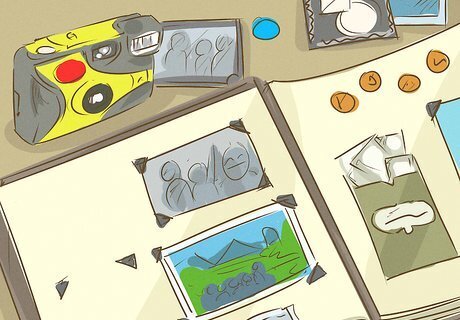
Reflect on good memories between the two of you. If you feel like you and your best friend are in a rut, talk about great memories the two of you shared together. Look through any pictures you both have or letters you wrote to each other. Reflecting on all of the good times you've shared together will remind both of you how important your friendship is.
Being a Supportive Friend

Be a support system for your best friend. You should always support your best friend, whether it’s through encouraging them when they’re feeling unsure of themselves, reminding them of their positive qualities, or sharing their excitement about a new life event. Cheer them on and let them know that you’re behind them the whole way. You should also support your friend during hardships. Listen to them and be there for them.
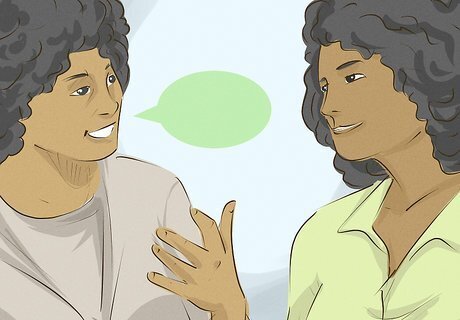
Encourage their passions. Maybe your friend loves writing and wants to become an author, or they really enjoy playing soccer and want to try out for the school team. Encourage them to go for it! Showing excitement and support for your best friend's passions will strengthen your friendship and make them feel important.

Find little ways to make their life better. Maybe your best friend has been sick with a cold, or they’re struggling to study for a test. You can bring them homemade soup to help with their cold or offer to help them make flashcards for studying. Little acts of kindness go a long way, and they’re a great way to make your best friend feel loved and supported.
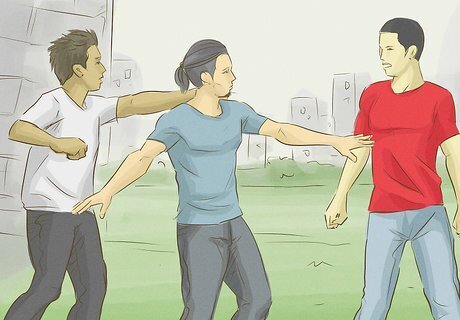
Stand up for each other. If you or your best friend is being bullied or hurt by someone else, or someone believes one of you isn’t telling the truth, be on their side. It never feels good to feel completely alone and defenseless, so stand up for each other and show support. If you or your friend needs help or support that you aren’t able to give, reach out to an adult or trustworthy and responsible person who can help fix the situation.
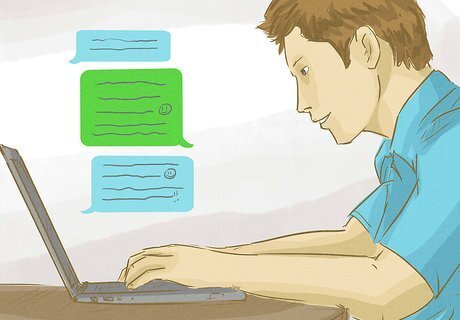
Give them a little space. While you want to spend lots of time with your best friend, you don’t want to be clingy - this could cause you to grow apart. Give your best friend some time to him or herself, and it’ll make the time that you spend together even more enjoyable. Talk to them about alone time and what each of you needs to be happy. This will allow you both to accommodate each other when something comes up.















Comments
0 comment